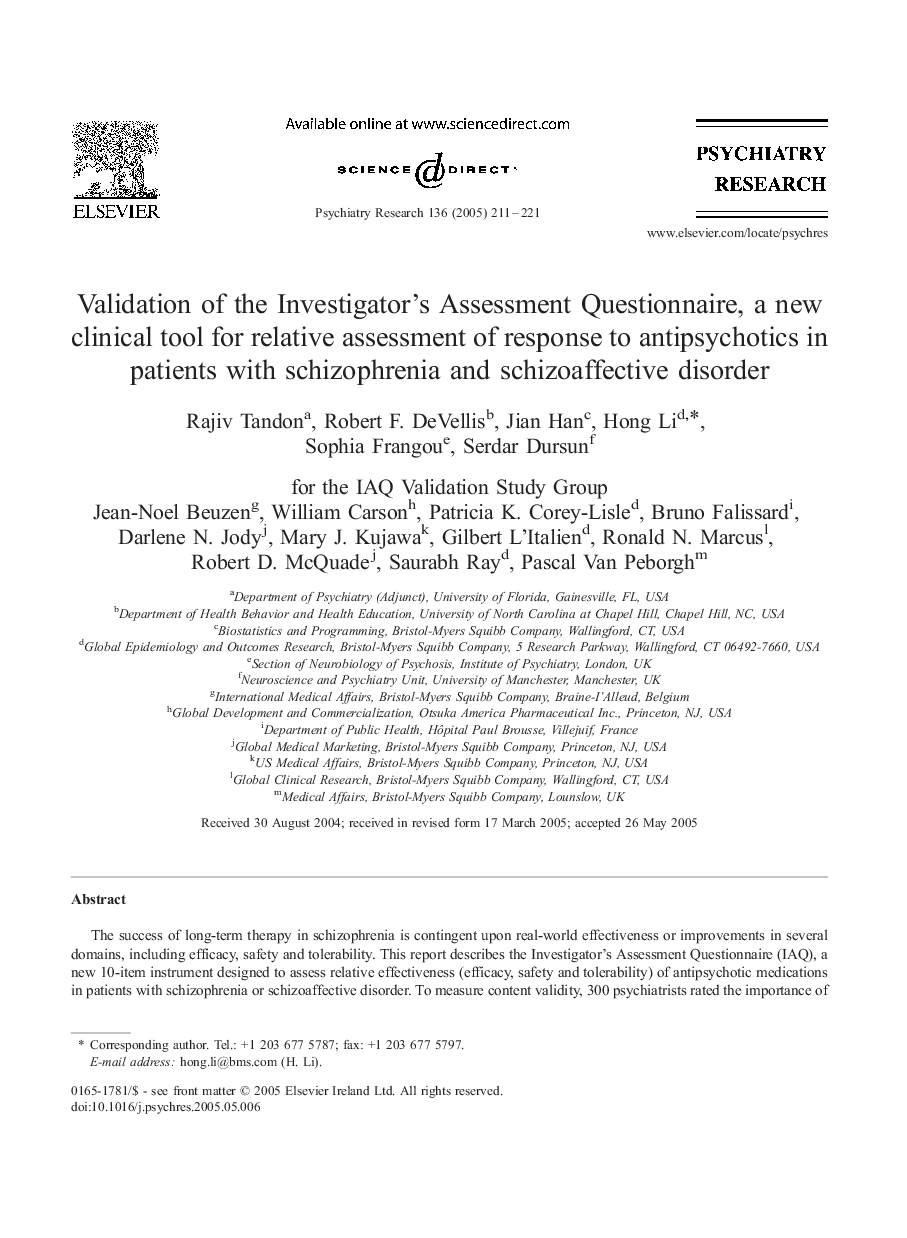| Article ID | Journal | Published Year | Pages | File Type |
|---|---|---|---|---|
| 9645981 | Psychiatry Research | 2005 | 11 Pages |
Abstract
The success of long-term therapy in schizophrenia is contingent upon real-world effectiveness or improvements in several domains, including efficacy, safety and tolerability. This report describes the Investigator's Assessment Questionnaire (IAQ), a new 10-item instrument designed to assess relative effectiveness (efficacy, safety and tolerability) of antipsychotic medications in patients with schizophrenia or schizoaffective disorder. To measure content validity, 300 psychiatrists rated the importance of the IAQ items. Efficacy (i.e., positive and negative symptoms) was considered most important, but importance scores relative to the mean ranged only from 0.87 to 1.18, suggesting similar importance of the items. Cronbach's coefficient α values showed that the items were internally consistent. Factor analyses indicated that all IAQ items belong to a single domain. Data from the US Broad Effectiveness Trial of Aripiprazole were used for construct validation. Total IAQ score correlated significantly with time to treatment discontinuation (r = â 0.50), Clinical Global Impressions-Improvement (CGI-I) score (r = 0.76) and medication preference of patients (r = 0.71) or caregivers (r = 0.70). A one-unit decrease in IAQ score corresponded to an additional 1.35 days in the study and a decrease in CGI-I of 0.21 units. These results provide initial validation of the IAQ as a tool for evaluating antipsychotic response in patients with schizophrenia or schizoaffective disorder.
Keywords
Related Topics
Life Sciences
Neuroscience
Biological Psychiatry
Authors
Rajiv Tandon, Robert F. DeVellis, Jian Han, Hong Li, Sophia Frangou, Serdar Dursun, IAQ Validation Study Group IAQ Validation Study Group, Jean-Noel Beuzen, William Carson, Patricia K. Corey-Lisle, Bruno Falissard, Darlene N. Jody, Mary J. Kujawa,
